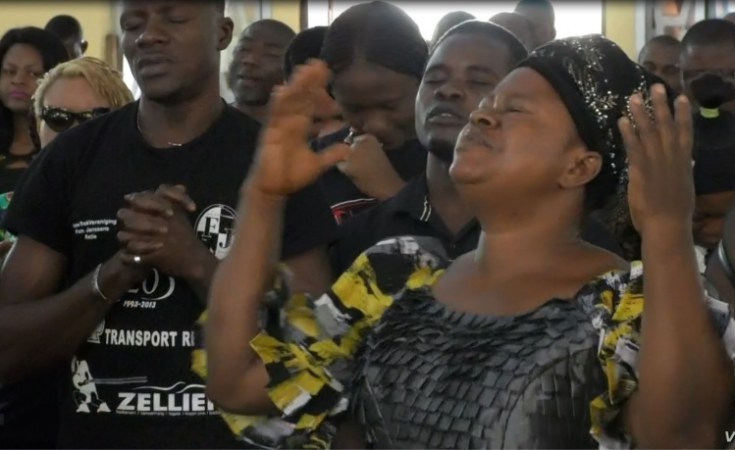Yaounde — Hundreds of women and activists marched in the capital of Cameroon Monday, calling for an end to the country's separatist crisis and for the government to provide more help to reduce the high cost of living. The march coincides with the observance of Pan African Women's Day.
Several hundred women at a courtyard in the neighborhood of Tsinga listen or sing along with the song "Family Love" by singer Kareyce Fotso.
The song urges families to sincerely love each other and be united as they try to overcome difficulties caused by several crises Cameroon is experiencing.
Anne Anaba, one of the coordinators of Monday's march, says the women assembled at the courtyard afterward to demand an end to the separatist war in Cameroon's Northwest and Southwest regions.
The war has killed about 6,000 people and displaced 700,000 others.
The march was also part of activities marking the annual observance of Pan African Women's Day. The holiday, declared by the African Union, is observed every July 31.
Anaba says poverty and hardships triggered by armed conflicts and unprecedented spikes in commodity prices have impacted families from building foundation stones for solid African societies. She says conflicts kill or displace men from communities and women spend time running for safety instead of teaching children to love, live together in peace and socially develop their communities.
She said women are the most affected by Cameroon's separatist crisis.
Women and children are also deeply affected by food insecurity along the northern borders with Chad and Nigeria where an Islamist insurgency has left more than 36,000 people dead, and 3 million displaced.
Cameroon women say besides the armed conflicts, they are finding it extremely difficult to cope with the rising prices of goods-- which they blame on Russia's invasion of Ukraine.
The government says since the Russian war began in February 2022, prices of rice, wheat, fuel and fertilizer have increased by between 40 to 60%.
Kiven Juliet, the president of Wheat Farmers in Cameroon's Center region, says she followed the Russia-Africa summit on July 27 when Russian President Vladimir Putin said Moscow will begin free deliveries of 25,000 to 50,000 tons of grain to some African countries.
But Kiven says Cameroon can ensure sufficiency by growing its food at home.
"I heard during the Russia-Africa summit that Russia will be giving wheat to African countries free of charge, but that is not what we want. Our governments should give subsidies for farmers to buy fertilizers and produce the wheat themselves," she said.
Rank ( + / - )Marie-Therese Abena Ondoa, Cameroon's minister of women's empowerment, says in 2022, President Paul Biya ordered the disbursement of over $15 million to grow wheat in the central African state. She says women who apply will have funding for fertilizer, wheat and rice seeds.
"Women represent an essential agricultural workforce and undeniably contribute to [the] fight against hunger and poverty," she said. "Women contribute significantly to the stability of life in the countryside and reduce the scale of rural exodus. They take care of their children, are involved in domestic and agricultural works to ensure food and nutrition for families and communities. They are also known for their support of movements for democracy, human rights and peace."
Biya was among the African leaders who attended the summit in St. Petersburg. He asked Putin to help Africa by increasing investment and canceling debt from loans.


